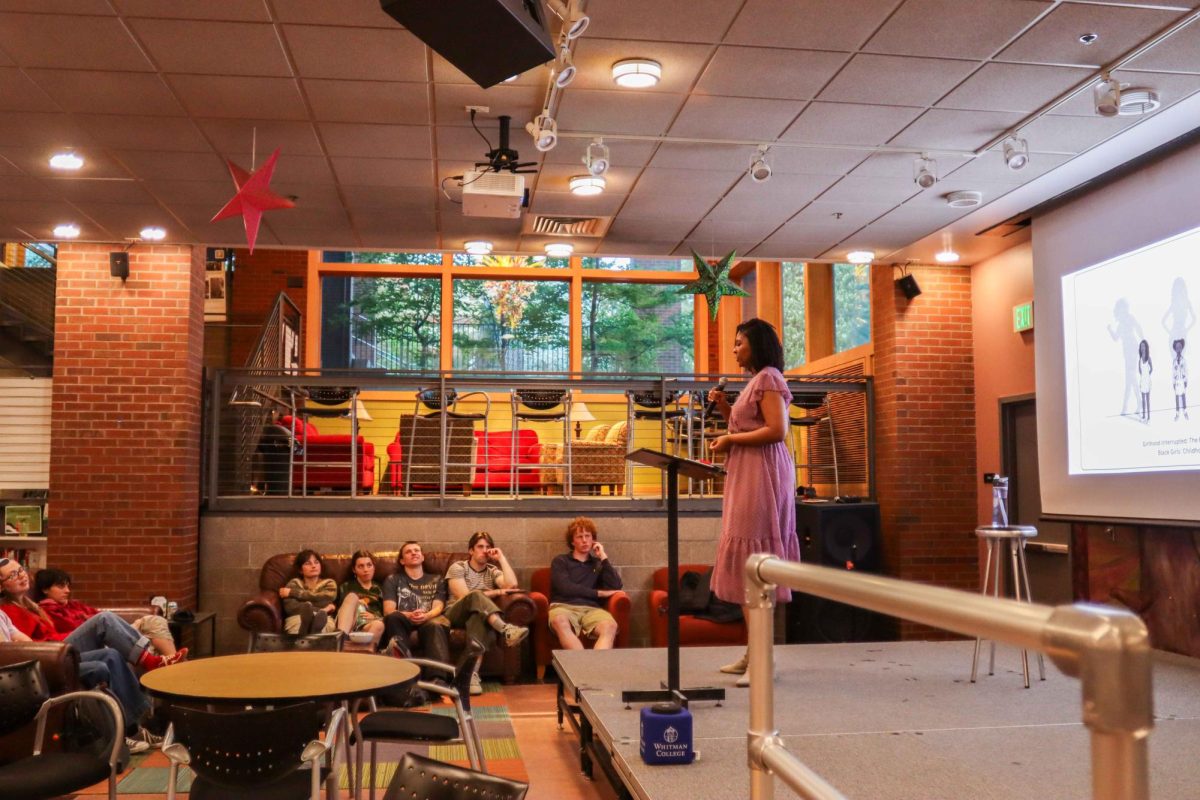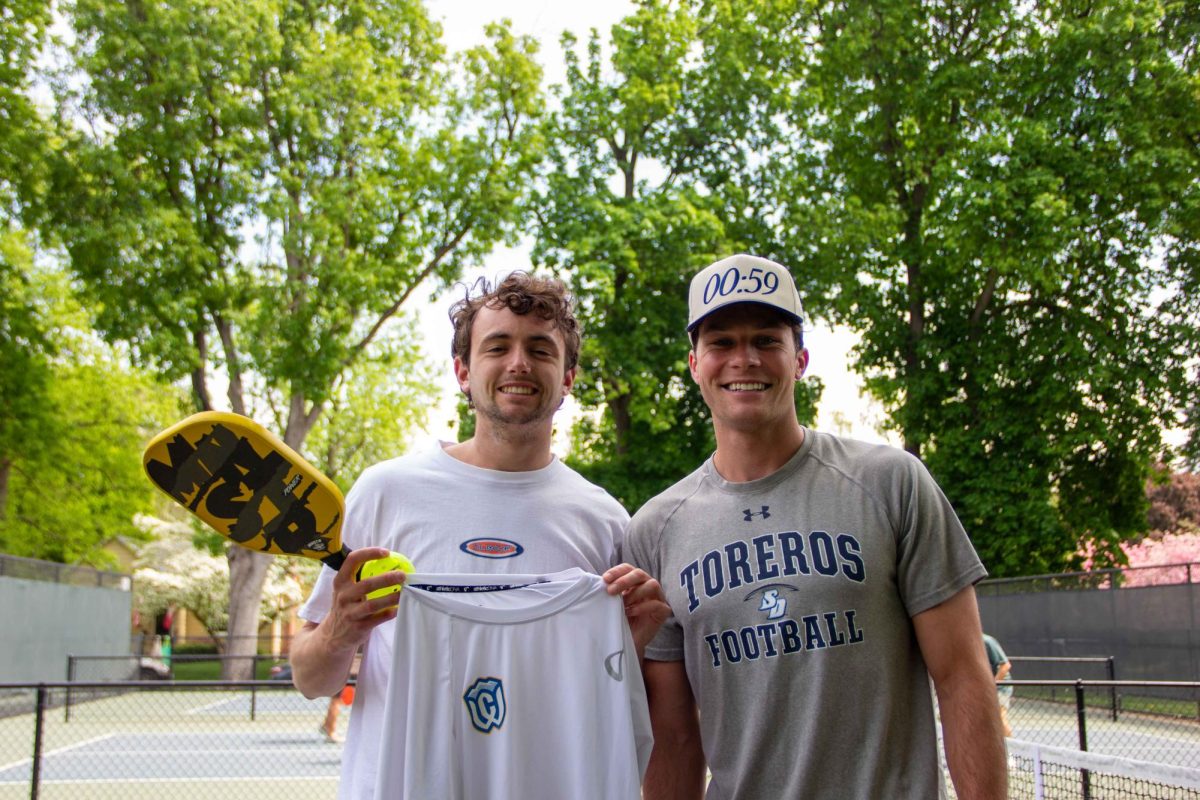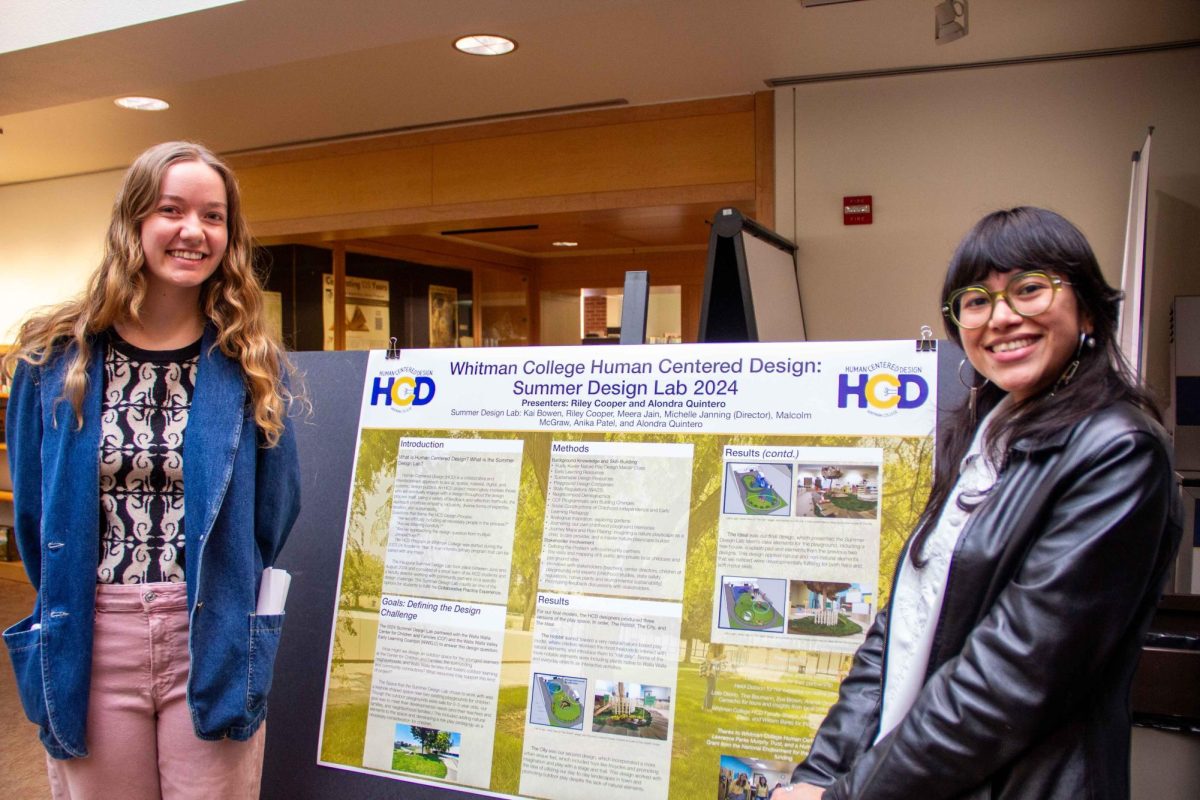Salmon fishing is a way of life for many people, especially for the Tribal communities in the Pacific Northwest. The second annual First Foods Festival, previously called the Salmon Film Festival, was held on Nov. 9, 2024. The festival brought attention to the endangered status of Pacific Salmon by spotlighting their connection to the Tribes while providing opportunities for meaningful cultural dialogue.
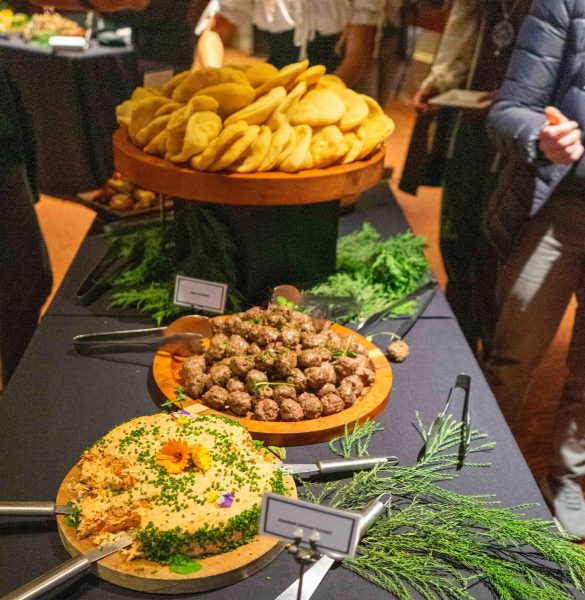
Senior Henry Roller was involved in planning the First Foods Festival and moderated a panel after the screening of “Fish War,” a documentary about the fight for Tribal rights when it came to salmon and its habitat.
Roller explained that “Fish War” was an important film to share since it explained how the 1974 Boldt Decision, involving the Hoh, Makah, Muckleshoot, Nisqually, Puyallup, Quileute and Skokomish tribes, changed salmon fishing in the Pacific Northwest.
“This landmark decision upheld the rights of Tribes to 50 percent of the salmon harvest and established co-management between the State of Washington and many Tribes to manage salmon collaboratively, affirming the sovereign rights of Tribes,” Roller said.
Roller emphasized the importance of education when it comes to salmon.
“Salmon are threatened and endangered throughout Washington State and are critical for many Native cultures as well as the ecology of countless watersheds. It is important for people to stay in the know about what is happening to salmon, both the bad news about how they are impacted by dams, climate change and pollution, and the good news about large restoration projects and new legislation,” Roller said.
The First Foods Festival spoke on the special place salmon has in the Tribal communities of the Pacific Northwest, and it did so by giving space to Native voices and history. Aiden Mamnisha Wolf, a current junior at Whitman, shared his thoughts on why the festival is significant to the community in an email to The Wire.
“It helps bring my culture into the limelight, which has been in the dark for a long time in American society. Either that or it has been victim to stereotypes and prejudice. So I’m very happy that we get to tell our stories truthfully. The way we tell stories is from the heart and mind, and this event was no exception,” Wolf said.
Freshman Allen Zamudio spoke on how he was pleased to see members of the Whitman community and the Walla Walla community engage with the First Foods Festival in a meaningful way.
“Everyone was being respectful, especially during the prayer, which is always nice since people are not always respectful,” Zamudio said. “It was nice to see a very peaceful environment.”
Jeanine Gordon, cawíitxpuu, the Special Assistant to the President for Native American Outreach spoke on the continued importance of the First Foods Festival in an email to The Wire.
“The importance of the First Foods Festival is that it is an avenue to bring cultural education to the college community through programs and events that are specific to the Confederated Tribes of the Umatilla Indian Reservation, the tribes upon whose homelands Whitman College was founded and exists,” Gordon said.
Gordon spoke on the importance of Native voices being able to share their history as a way of building community with Whitman College.
“With the college’s effort in its strategic planning specifically to engage substantially with its ‘history in ways that are honest and reparative with those harmed, and fully realize the commitments in the Memorandum of Agreement with the Confederated Tribes of the Umatilla Indian Reservation,’ it is imperative that we bring education and experience through programming and events that will engage that history honestly and emphasize reparative collaborative efforts that are so important to the relationship between the Tribes and the college, and so important to recognizing the land upon which the college exists and honoring the peoples who lived and existed in these homelands prior to Western expansion,” Gordon said.
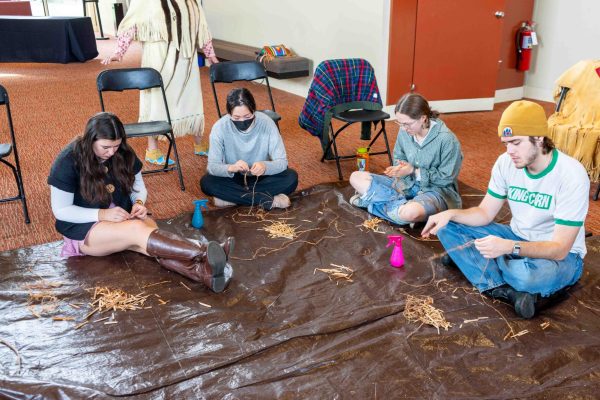
Gordon wishes for the First Foods Festival to continue, not only to highlight the importance of preserving resources like salmon, but also to continue education in the community.
“My hopes for the future of the Festival is that it continues to be a positive and meaningful educational and cultural experience for our Tribal people, the college community and the surrounding communities. That it is a launching board for continuance of educational events that will grow each year, and bring more education to our communities about Tribal culture and political and environmental collaboration in important work being done among Tribal, city, county, state and federal governmental bodies and entities,” Gordon said.


